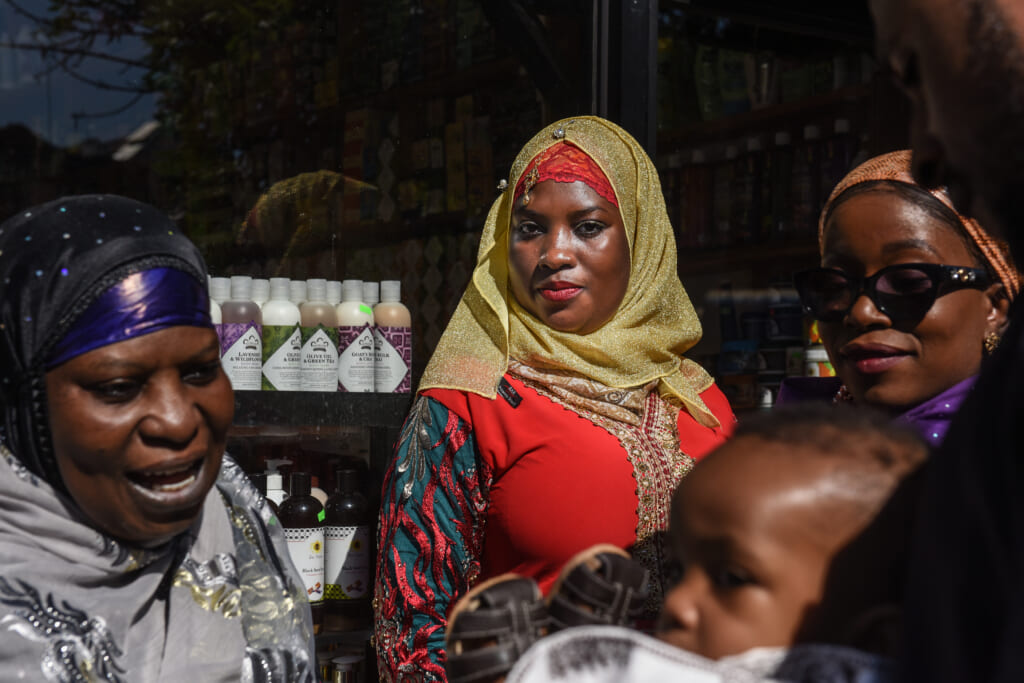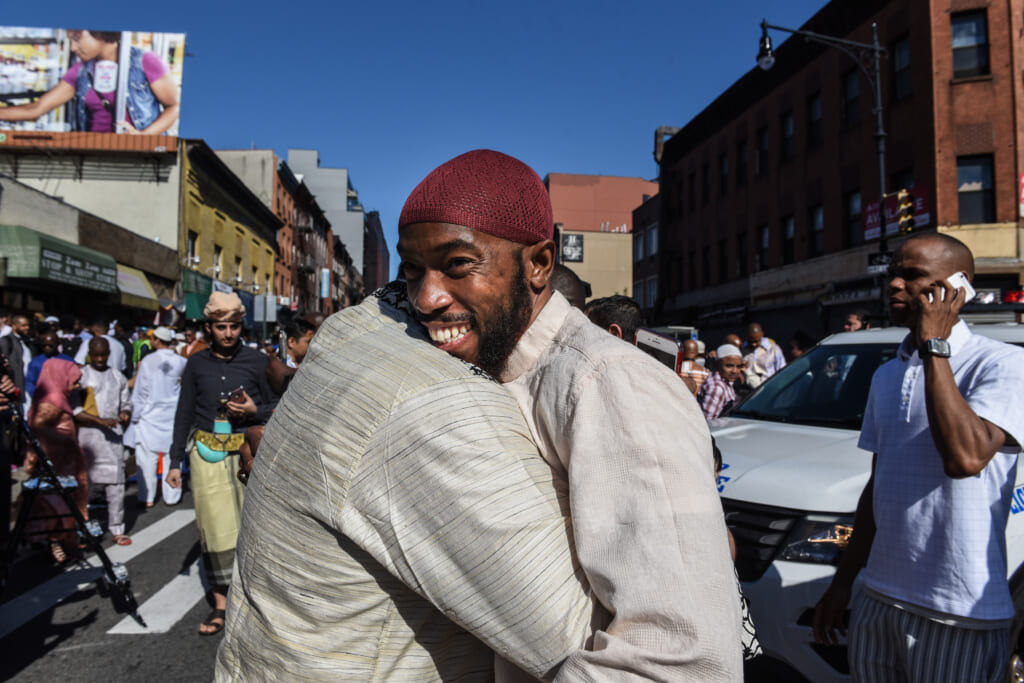Double minority: ‘Dear Culture’ podcast explores the Black American Muslim experience
“From my understanding, the religion of Islam is about humility and it’s about your relationship with God,” said co-host Gerren Keith Gaynor
Eid Mubarak, Fam! This week, Muslims from all over the world will celebrate the end of Ramadan, which is an entire month dedicated to prayer, fasting, reflection and community.
From the sports to culture to politics, Black American Muslims are a vital to shaping and influencing Black American culture, but their status of as a minority within a minority (a study by the Pew Research Center says only 2 percent of Black Americans identify as Muslim) makes them an even bigger target for harmful misconceptions and discrimination.
This week, Dear Culture podcast asks: Do we really understand Black Muslims?
When talking about some of the common stereotypes of Black American Muslims, Dear Culture Co-Host and theGrio Social Media Director Shana Pinnock pointed to the ways in which pop culture and the media at large portray Black American Muslims as overly militant, rigid and misogynistic. Pinnock cited examples in popular movies like the Wayans-helmed 1996 film Don’t Be a Menace While Drinking Your Juice in The Hood and an episode of the iconic TV show, A Different World.
“You look at things like Law & Order and anything that had do with terrorism or anything past 9/11, if you were Muslim, you were the enemy,” said Pinnock.

Read More: Dear Mama: ‘Dear Culture’ podcast talks redefining motherhood
For co-host and theGrio Managing Editor Gerren Keith Gaynor, the lack of Muslim visibility in and around his community shaped his view of the faith and its practitioners and that he saw first-hand the mistreatment Black Muslims faced.
“My mom had a childhood friend, who came around now and then, who was Muslim and she was, like, the first representation for me of a Black Muslim because she wore the full garbs,” said Gaynor. “I noticed how people would look at her in public and I remember how my classmates who were Muslim got teased often for what they wore and for being different”
Media personality DJ Damage and actor Eric Berryman joined the hosts this week to talk about their experience being raised in and practicing Islam. When asked about the ways in which homophobia and sexism are linked to the Muslim faith, both guests agreed that, in their opinion, religious texts and practices should be viewed through a contemporary lens.
“This misogyny, this homophobia is in these documents, unfortunately, and you have to come to understand that these things are not the way of life,” said Berryman. “Religion will allow people to say and do whatever they want to believe, because Christianity, for a time, allowed people to enslave other people. Yet, there are millions of people who are Christian that know [that’s wrong] and would never enslave someone.”
It wouldn’t be an episode of Dear Culture without a word or two from the Twitterverse, which has notoriously conflated the Muslim faith with the much-criticized Hotep Twitter, a topic our executive producer, Blue Telusma, wrote about back in 2015. However, the origins of the word “hotep” actually has a much more profound meaning.

“Hotep is a word of peace,” said Damage. “So, to me that’s like something that’s so beautiful, like a flower, and weaponizing it.”
Both guests also talked about the challenges and rewards of being a Black American Muslim. In a particularly tender moment, DJ Damage recalled how his Islamic school was vandalized in the wake of the 9/11 attacks, in spite of the Nation of Islam’s reputation within his community as neighbors and caring citizens who are were there to help.
“It hurt me to my core that something in the media could make people turn their backs on people who were active in the community every day, showing love, showing respect, feeding people,” Damage said.
In spite of the challenges, Damage and Berryman agreed that they wouldn’t trade their upbringings or continued faith for anything in the world.
“When I came out here to Hollywood and started following my dreams, I wasn’t easily pulled in different directions because I had a sense of self,” said Damage. “I’m content with who I am and a lot of people don’t get that until later in life and so I would say it [Islam] has helped me in my path.”
Tune in Dear Culture, the smart, reliable Black news podcast. Now streaming on Apple Podcast, Spotify, and Stitcher.
TheGrio is now on Apple TV, Amazon Fire, and Roku. Download theGrio today!
